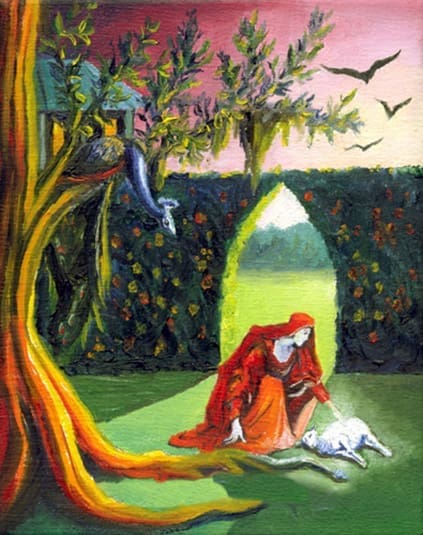Meeting the lambs of God in our everyday life
By LORRAINE V. MURRAY, Commentary | Published February 6, 2020
I was antsy. After writing all morning, what could I do as a change of pace? Oh, I know, I could go shopping, I thought.
Then I imagined myself scanning the seemingly endless rows of blouses, sweaters, dresses. Did I really want to spend my precious free time that way?
Another thought popped into my head quickly: Why don’t you visit your friend in the hospital and then swing over to the nursing home and see your mother-in-law?
A half hour later, I was at Emory Hospital, where I took the elevator to the ICU on the fifth floor. As I signed the visitors’ list, the reality hit me, namely that my friend had been in the same hospital room for more than two months.
All the days I’d taken walks, visited friends, eaten ice cream, traveled to Florida, celebrated Christmas, gone to Mass and read books, he had been in the same room, in the same bed.
Last time I’d visited, he had been in a coma, and I’d just stood beside his bed and prayed for him. He was awake today, but his condition was so pitiful I wanted to cry.
Tubes went in and out of various parts of his body. He couldn’t eat and couldn’t even sip water, since he still couldn’t swallow on his own. He had a trach tube in his throat and a feeding tube in his nose.
He was lying on his back with his arms outstretched. “My God,” I thought, “This is Christ on the cross!”
 What could I say? There were no platitudes that would fit this situation. I imagined myself meeting Christ on the way to Golgotha, as he bent wearily under the weight of his cross.
What could I say? There were no platitudes that would fit this situation. I imagined myself meeting Christ on the way to Golgotha, as he bent wearily under the weight of his cross.
“Jesus, what can I do? How can I take your suffering away?”
And then Jesus turning to me, the stricken look in his tear-filled eyes, and the voice, so tired, so hoarse. “Take care of my lambs.”
All I could think of that day in the hospital was prayer, so my friend and I said part of the rosary together. He chose the glorious mysteries, so we began with the Resurrection, the promise of healing and life after suffering and death.
At the nursing home, I took the elevator to the second floor, which is the dementia ward. As I walked to my mother-in-law’s room, I greeted the residents who sat in their wheelchairs in the hall. Some answered with a smile, while others stared blankly ahead.
I thought: “Here are more of his lambs in need of love.”
At first my mother-in-law didn’t recognize me, until I told her a story she once told me. The time when her children were little and she had baked a pan of chicken and left it on the kitchen counter. Reuben, one of the family’s Bassett hounds, caught a whiff of the feast, upended the pan onto the floor and gobbled up every morsel.
Now she laughs, and I see the familiar light in her eyes that tells me she is still “in there,” although radically changed.
To some people, dementia patients might seem like the throwaways of the world, since they are no longer productive and need constant care. But even if their mental abilities are diminished, their souls remain, and they are precious in the eyes of God.
I went home that afternoon tired, but somehow exhilarated too. When we search for Christ, it’s amazing how easily we meet him. We must look for his lambs—the sick, the prisoners, the hungry and thirsty and the lonely.
In a place unknown to reason, the beloved Lamb of God becomes the lambs so loved by God. In that place, Jesus carries his cross again to that lonely hill. And the tears he shed on Calvary become the balm that heals the world.
“The Garden” oil painting is by Jef Murray. Lorraine’s email address is lorrainevmurray@yahoo.com.